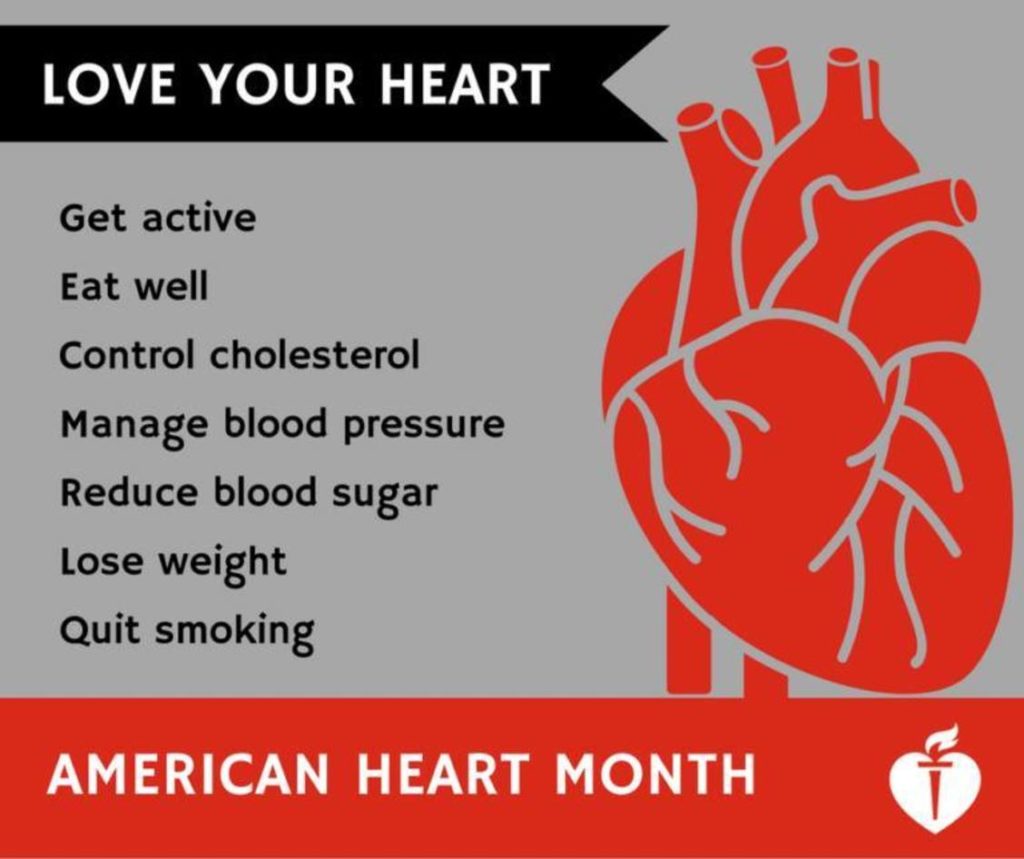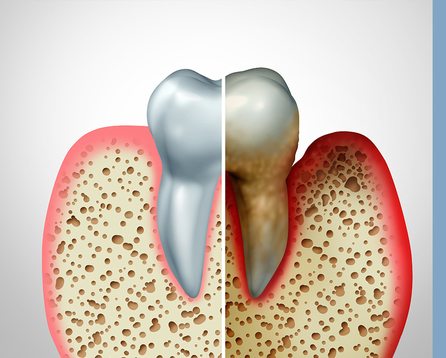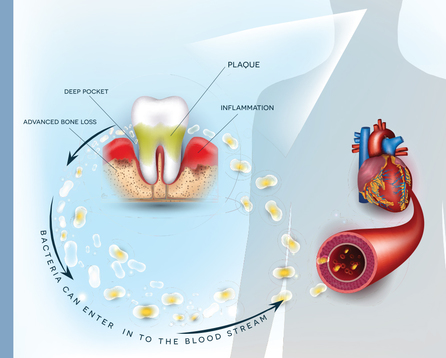
Right around this time of year, you can’t go anywhere without seeing red and pink hearts and for good reason. In February, we can celebrate not only love but heart health as well. It makes sense that February is Heart Disease Awareness Month, intended to help people learn more about the cause of 1 in every 4 deaths in the United States. If you visit us this month, don’t be surprised if you see us wearing red to help spread awareness!
You may already know some ways you can keep your heart healthy, such as regular exercise and eating more fruits and vegetables, but did you know that you can improve your heart health by taking care of your smile? It’s true! In fact, February is also Gum Disease Awareness Month, and by the end of this newsletter, you’ll understand why these two diseases share a month.

In honor of Heart Month, we are holding a giveaway contest! To enter, visit our front desk and guess the number of hearts in the jar. The person with the closest guess will receive a Philips Sonicare electric toothbrush, as well as a 6-week Boot camp session taught by our very own Alyssa! Come on in and enter your name, as we will announce the winner at the end of the month.


What Gum Disease Is
Gum disease (also called periodontal disease) is an infection of inflammation-causing bacteria in the gum tissue. These harmful bacteria attack the connective tissue between gums and teeth, leading to loss of gum tissue and even bone in more advanced states. Once bone loss has occurred, teeth lose their stable foundation. They can become loose and even come out completely. In fact, gum disease is the number one cause of tooth loss!

The Impact if Gum Disease on the Heart
So how does an infection within the mouth relate to your heart? Your gums have many small blood vessels coursing through them, which links to the rest of your body. The inflammatory bacteria present in periodontal disease have the potential to enter the bloodstream and travel to other areas of the body. In blood vessels or veins where circulation is already restricted, these inflammatory bacteria can exacerbate the problem. Research has shown a correlation between gum disease, high blood pressure and an increased risk of a cardiovascular event, like a heart attack or stroke.


How We Treat Gum Disease
The best approach to take in the fight against gum
disease is to prevent it in the first place. With daily brushing, flossing, and
healthy lifestyle habits, much of the bacteria-holding plaque can be removed.
However, it’s equally important that you visit Brooks Dental for a dental checkup
and cleaning on a regular basis to keep plaque from building up and hardening
around the gum line, opening the door for gum disease.
Although there is no cure for gum disease, we are
fortunate enough to have Dr. Valerie Martins, a board-certified periodontist,
on our team at Brooks Dental to treat this condition and bring it under
control. With her advanced training and clinical knowledge, she ensures that
patients with gum disease receive the necessary treatment to stop the infection
and try to reverse the damage. Our dental hygienists work in tandem with Dr.
Martins, treating the mild to moderate stages of gum diseaseand
maintaining the patient on a more frequent cleaning schedule. These treatments
include non-surgical procedures called scaling and root planing, during which
the hygienist cleans underneath the gumline and removes plaque and tartar from
otherwise hard-to-reach areas. Our hygienists also oftentimes apply a localized
antibiotic right into the gum tissue to aid in healing. In more severe stages
of periodontal disease, Dr. Martins will treat the patient, employing a surgical approach to halt the process of disease which
facilitates a more stable oral environment.
With nearly half of American adults with an advanced
form of gum disease, everyone needs to be more aware of the signs of gum
disease and how to respond to it. Otherwise, we put not only our smile at risk
but also our overall well-being. Are you doing everything you can to prevent or
treat gum disease? Contact Brooks Dental and schedule your appointment today!
